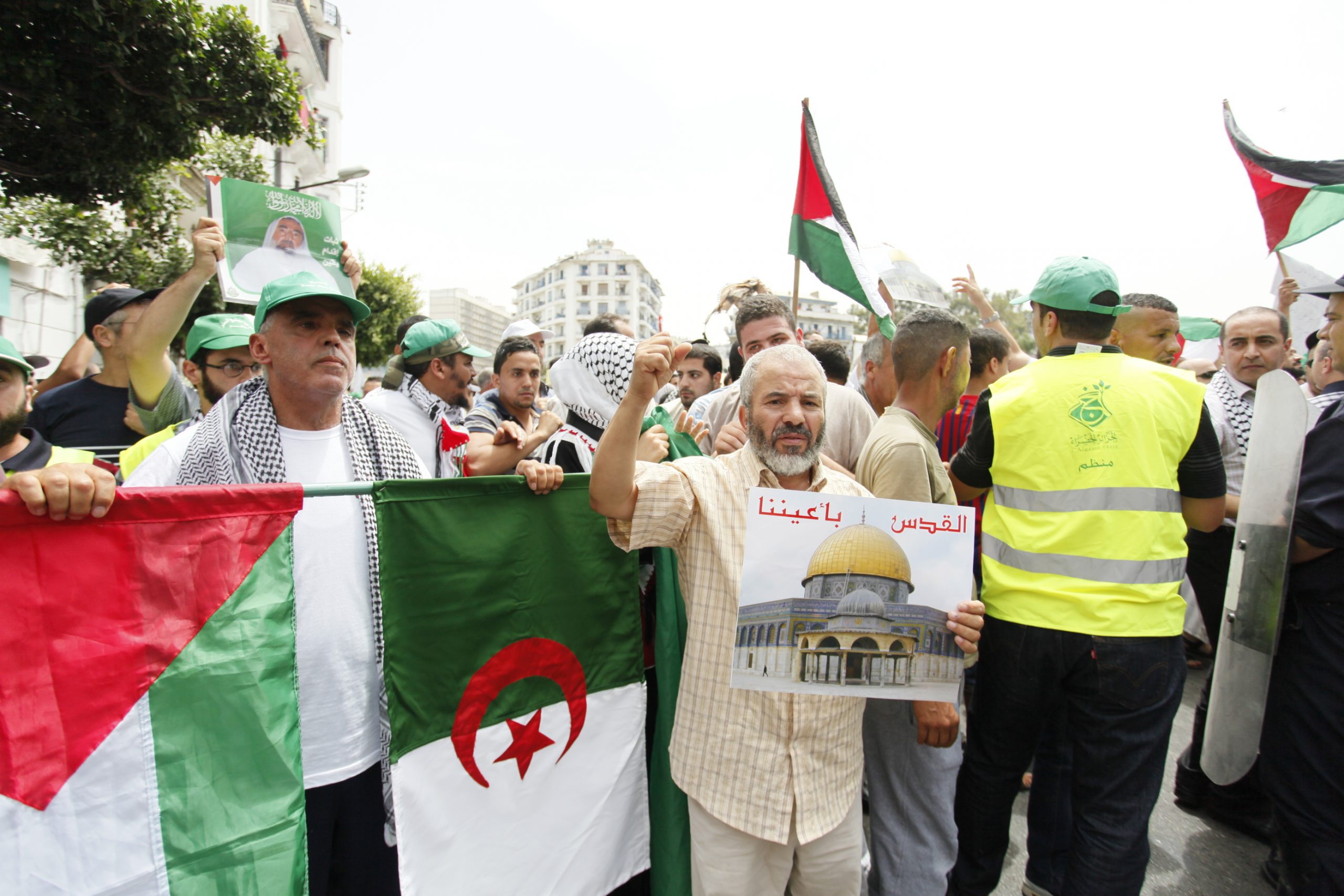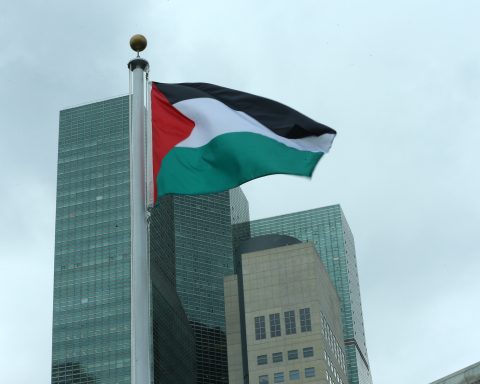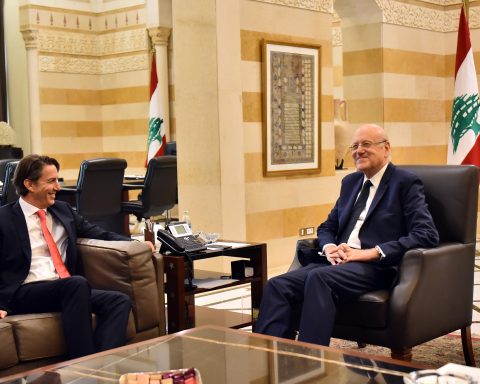Algeria, the land of patriotism and martyrdom, the country of a million and a half martyrs, like Palestinians. Algerians are known for their unconditional support of the Palestinian cause.
Chronologically, in 1965, the Palestinian Liberation Organization’s (PLO) first office in Algeria was opened in Victor Hugo Street in Algiers and headed by Ibrahim Khalil al-Wazir, also known as Abou Jihad, who was assassinated by Mossad in 1988 in Tunis.
Active diplomacy for the voiceless
The Algeria-Palestine relationship is a unique story between the two countries’ people and leaders. One should remember those immortal pictures in 1974, at the UN General Assembly (UNGA) in New York City, when PLO chairman Yasser Arafat was invited to the 29th session of the UNGA that was chaired by then a young and dynamic diplomat, Algeria’s Foreign Affairs Minister Abdelaziz Bouteflika. In a historic moment, President Boumedienne stood hand in hand with PLO chairman Yasser Arafat on the UNGA podium, followed by a speech in which the PLO leader praised Algerian leadership for showing its support for the Palestinian cause.
It was a diplomatic victory, and an international political shift that fortified the PLO leader’s charisma around the world. No Palestinian official had made a speech at the UN since the partition plan in 1947. Later, after President Boumedienne’s speech before the UNGA, the PLO, an organization that was considered a “terrorist” organization by the West at that time, was like Hamas and the al-Jihad movements nowadays.
President Boumedienne used the famous line: “We are with unjust Palestine or oppressed Palestine,” a line that certainly belongs to the pantheon of the Algerian elite, media, and public on the topic of the Palestinian cause.
In 1975, Algeria did sponsor a resolution equating Zionism with racism. Algeria was the voice of the voiceless on the world stage.
The road to unity
In June 1988, Algeria held an Arab leaders summit named the “Al-Intifada Summit,” led by President Chadli Bendjedid. At this summit, there was only one issue on the agenda, which was supporting the Palestinian Intifada in the occupied Palestinian territories. Later, in November 1988, the Palestinian National Council met in Algiers and announced the declaration of independence, which proclaimed the State of Palestine with Jerusalem as its capital.
Last month, President Abdelmadjid Tebboune took the initiative in the internal Palestinian division between Hamas and the PLO, which broke in 2007 when Hamas forcibly took over the Gaza Strip from the Fatah Aliiance. The meeting of unity between the two rival leaders was organized by President Abdelmadjid Tebboune on the sidelines of the celebrations marking the 60th anniversary of Algeria’s independence from France on July 5, 2022.
In moments of doubt
Algerians, nonetheless, were shocked in 1999 watching the first dreadful image of the late President Abdelaziz Bouteflika’s handshake with Israeli Prime Minister Ehud Barak, in Rabat, on the sidelines of the funeral of Moroccan King Hassan II. At that moment, the first signs of suspicion that there might be secret relations that brought Algerians to the wagon of the first “normalization” wave in light of the Oslo Accords in 1993. Algerian officials had quickly denied the suspicions of any “normalization,” interpreting this incident as being a “spontaneous protocol alphabetical greeting order.”
This so-called protocol incident did not end there. In 2000, President Bouteflika sent an invitation to French-Jewish singer Enrico Macias, who was born in Constantine during the French colonization and known for his stances in support of the crimes of the occupation of the Jewish state. The reaction of Algerian public opinion and media, as well as nationalist and Islamist political parties, prevented the singer’s arrival.
In May 2005, Algerian authorities allowed 250 French Jews born in Algeria during the French colonization to organize a pilgrimage season to the “Temple of Qabasa” and the tomb of the Jewish Rabbi Ephraim in the city of Tlemcen province in the west of Algeria. The adoption of a representation for the Jewish community, according to the Law Regulating Religious Rites for Non-Muslims, was promulgated in 2005.
In 2016, it was the inclusion of a map that placed the name “Israel” instead of Palestine in a textbook in Algeria, which brought back the controversy over facts and previous hidden attempts at “normalization.”
Justice for Palestine
Yet, in light of Algeriaʼs peaceful Hirak uprising in 2019 which changed Algeriaʼs domestic politics as well as its foreign policy imperatives, the new Algerian authorities, civilian and military alike, established a clear official position on the Palestine cause. In the winter of 2020, former US President Donald Trump’s administration announced the details of the political portion of its plan to “solve” the Palestinian-Israeli conflict, a plan known broadly as the “Deal of the Century.”
Thus, the Algerian foreign ministry issued a statement affirming its commitment to the establishment of an independent Palestinian state with East Jerusalem as its capital. Algeriaʼs strong and permanent support for the Palestinian cause and the inalienable rights of the Palestinian people have also been reaffirmed by the ministry in a statement, saying, “Algeria does not see a way to resolve the Israeli-Palestinian conflict without the involvement of the Palestinian people.” The statement said it also stressed Algeriaʼs adherence to the Arab Peace Initiative, which is based on Israelʼs complete withdrawal from the occupied Arab lands.
Two years ago, President Abdelmadjid Tebboune, in his first UNGA international speech from his office in El-Mouradia, strongly criticized the Abraham Accords with Israel, emphasizing that Algeria will never trot fast to join the “normalization” process. The process seems to be established to bury the Palestinian cause for good. Why Algeria espouses the Palestinian cause, making the Palestinian legitimate struggle Algeriaʼs sacred cow, is that the Palestinian cause had been carved in the national memory of Algerians through generations. For instance, football fans from stadium bleachers chant “Palestine Martyrs” (Falastine Al-Chouhada) as if the Palestine national team is on the field.
In this stance, in February 2016, the Palestinian Olympic team beat the Algerian national team 1-0. Algerian fans had filled the Mohammed Boudiaf Olympic Stadium, which has a seating capacity of 80,000, making it one of the largest stadiums in Africa, with Palestinian flags, cheering for the Palestinian national team. Algerian fans were saying: “Today, it is not about football match, it is all for Palestine.”
In July 2019, Palestinians in Gaza and the West Bank took to the streets, celebrating Algeriaʼs victory in a match against Senegal in the 2019 African Cup of Nations final in Cairo, Egypt, chanting: “One, two, three viva lʼAlgérie.” It is almost an untold love story that cemented the two countries’ relations between their peoples and their leaders.
Elsewhere in the region, it does sound like Libya’s domestic quarrelsome approach, in light of the political impasse domestically, would allow them to normalize. While leaders in the eastern part of Libya sound enticed to get on the Abraham Accords train, Tunisia defined normalization as a crime through its president during his inaugural speech in the fall of 2019. So, will he keep his word or will he reveal the secret story of his country’s liberal political elite to Jewish state lobbyists in France? As for Morocco, which chairs the Al-Quds Committee, an offshoot of the Islamic Conference Organization (ICO), Rabat did officialize its long-time relations with the Jewish state in 2020. Mauritania, after a forced normalization with the Jewish state in 1999, did cut off its official relations in 2010.
For Algeria, in the ongoing geopolitical turmoil that is shaping the entire MENA region and the Maghreb in particular, it is impossible for Algeria to turn its back on Palestine. Firstly, this is a result of the bold positions aforementioned which were taken toward the Palestinian cause by the Algerian authorities. Secondly, the high diplomatic tensions between Algiers and Rabat, which has worsened due to Rabat’s strategic rapprochement with the Jewish state, is also crucial. Finally, Palestinian people at home and abroad are saying: “We fight for liberty and we will make Palestine a land of patriotism and martyrdom.”














